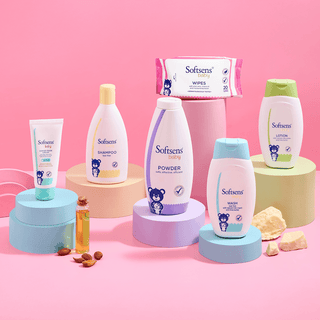
Here’s the deal, parents. If you have a toddler who never throws food tantrums and finishes everything on his/her plate without any fuss, then you’ve pretty much won the parenting lottery. The truth is most toddlers go through a picky eating phase at some point. As they become older, choosing what or what not to eat gives them a certain sense of independence and power, making dinner-time a real warzone. But, if you handle the situation carefully and patiently, your fussy little eater will soon outgrow this phase. In fact, inculcating healthy and balanced eating habits right from the beginning will serve your little one well all through his/her life. Here’s some amazing, parent-tested tips that will get you through this tough but (hopefully) short phase.
1. Stop pushing
Many of us were brought up with the ‘don’t get up until you finish what’s on your plate’ strategy. But studies show that it’s not the ideal way to deal with a fussy eater. By forcing your child to finish their food, the child is not able to learn how to listen to his/her bodily signals and eat according to their appetite. In fact, this kind of technique can pave the way for unhealthy eating habits in the future. Make mealtime a mindful activity and let your kids decide how much they want to eat. Start them off with smaller portions and teach them to ask for more if they are still hungry. That way they’ll always finish what’s on their plate and learn not to waste either.
2. One step at a time
Okay, so your child probably isn’t going to fall in love with spinach the first time he tries it, and that’s fine. The key here is ‘repetition’. Sometimes children need to eat a certain food 10-20 times before they become comfortable eating it. Keep re-introducing it at different times and serve them very little each time. With new foods, it’s best to start small and slow.

Be patient and don’t expect your little one to change habits overnight.
3. Gather all your reserves of ‘patience’
The journey to becoming a healthy eater is a slow and arduous one. Be prepared to be very patient. As you know, toddlers are wildly unpredictable. They might love one food today, hate it tomorrow, and want it the day after. Be patient and consistent in your efforts.
4. Make mealtime a peaceful family activity
Most important rule – minimize distractions! The more distractions there are, the more your child will lose focus of the food and be likely to waste. Make mealtime a fun activity with your family. Switch off the television and other noise-creating devices, put away those tablets and phones and sit down to eat together. Another great benefit of this is that your child will watch and pick up your eating habits. Set a good example.
5. Help them understand what they’re eating
Very often we serve food to children without really helping them understand its benefits or where it comes from. Talk to your kids about what they’re eating. Becoming aware about food helps set a strong foundation for healthy eating habits. Take the kids grocery shopping with you and make them help you pick out stuff. Get them to help you in the kitchen with small tasks like rinsing fruits/vegetables or cracking an egg.
6. Hold off on unnecessary snacking
If your little one snacks at odd times during the day, he will be less likely to eat a proper meal. Limit snack time to twice a day along with three proper main meals and try and keep healthy snacks around for both you and the little one.
7. Get smart and creative
When toddlers get fussy, moms & dads get creative. A lot of children refuse to eat certain foods because of texture, smell, taste and a variety of reasons. Try and introduce a new food by mixing it with something they like. For example: If your toddler has an aversion to cauliflower, mash it up and mix it with mashed potatoes for instance. Or blend vegetables and mix them into your pasta sauce. Once your child starts eating and enjoying the taste, you can slowly try serving it in different textures.
Watch a lot of MasterChef? Put those plating tips to use and dress up your child’s plate creatively. Make a little tree, boat or smiley with their food and watch as they have a fun time eating.

8.When food looks fun, eating becomes fun too!
So maybe you don’t think it’s a huge deal when your child ate that carrot on your 20th attempt serving it to him. But celebrate it anyway! Praise and encourage your child when they eat new foods. Don’t bribe but use a lot of positive reinforcement. This will make your child feel good and open about trying new things.
Share your best tips and advice with us for a chance to be featured on our Facebook page or next blog!



















